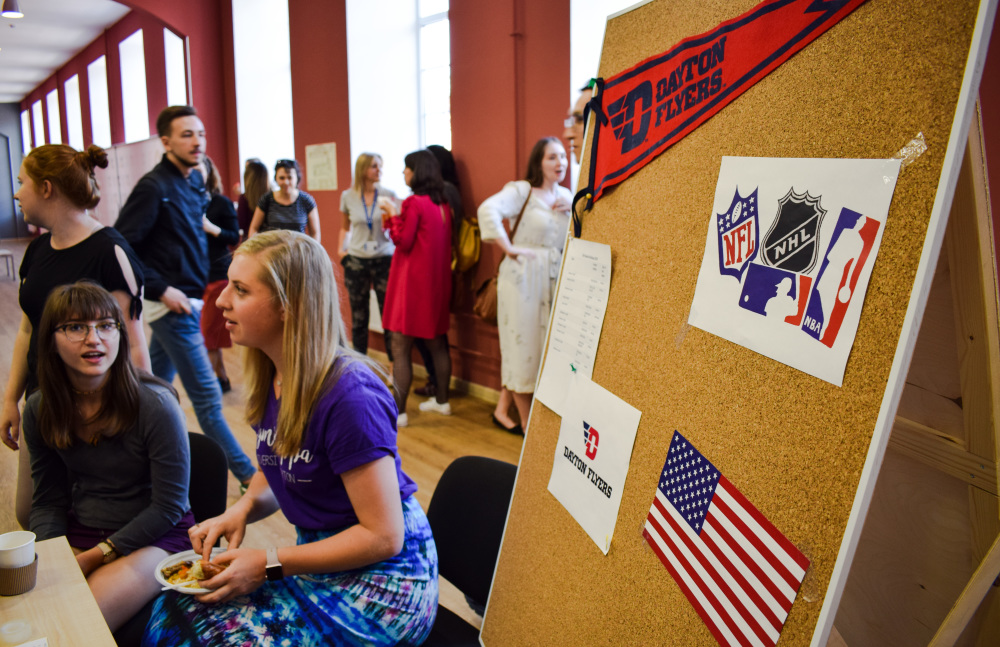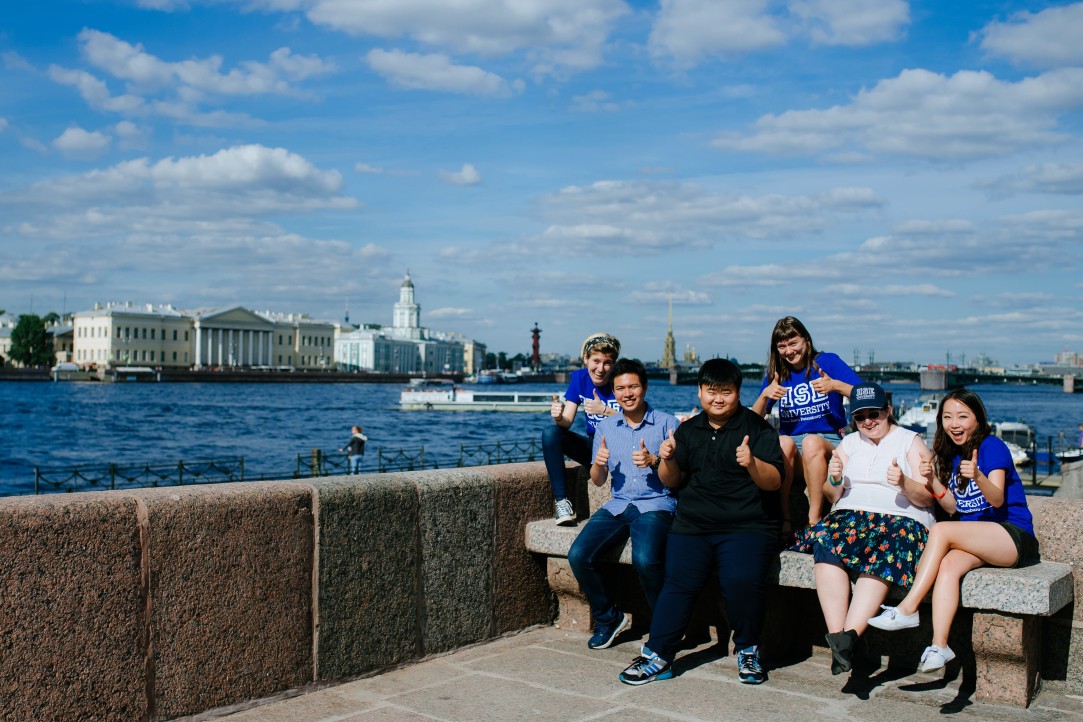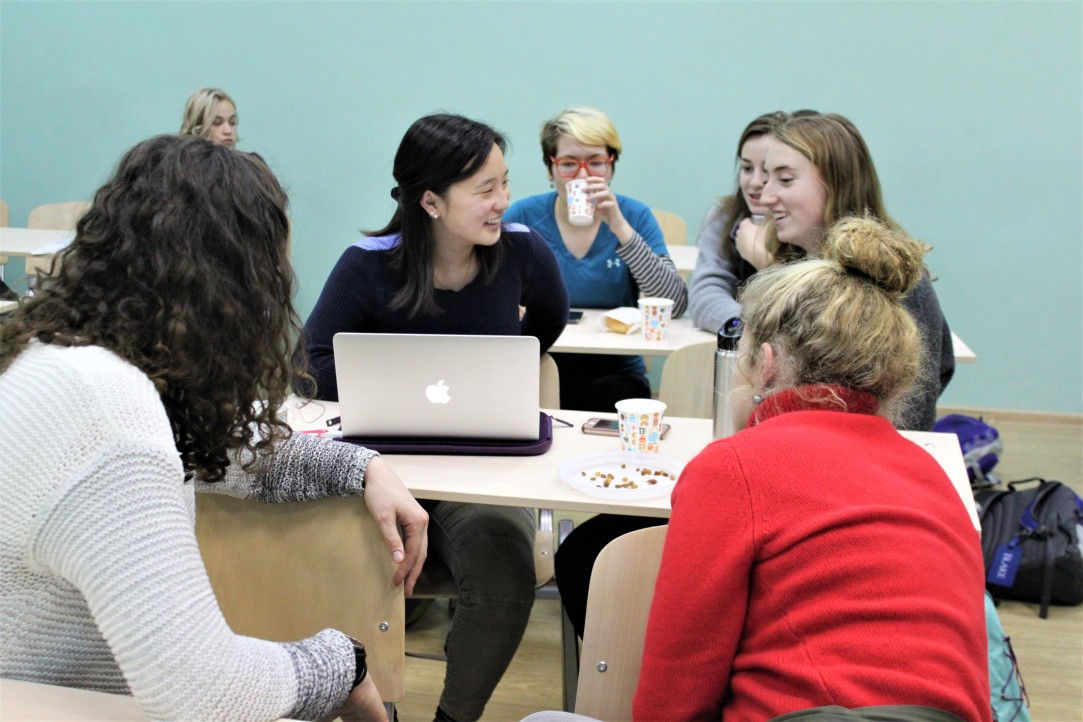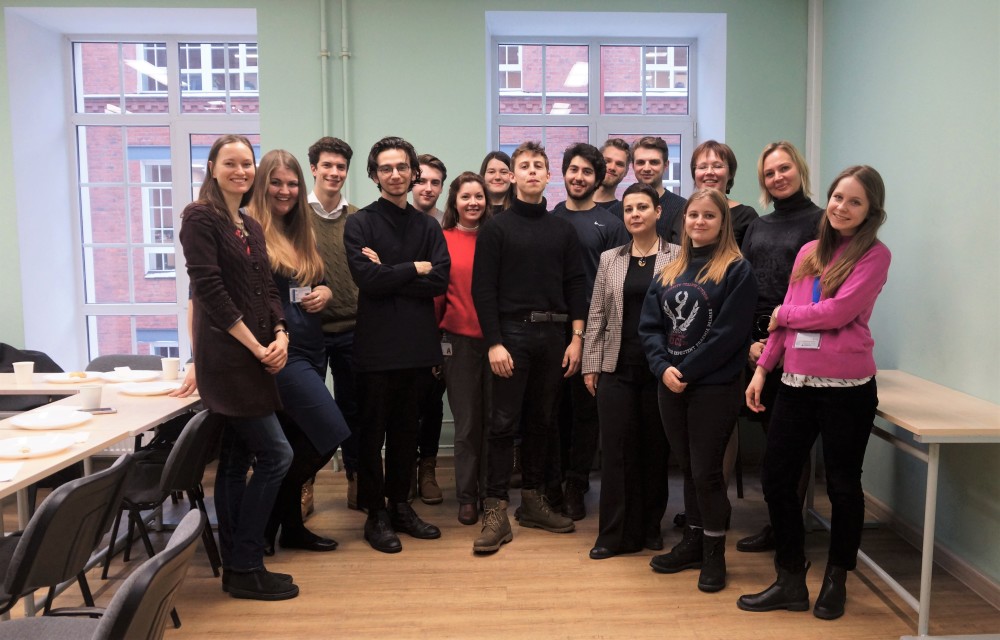
Vegetarian Food and American Music in Tolstoy’s Russia
This spring, HSE University - St. Petersburg has been especially lucky with old and new friends coming to visit. From 14th to 30th of May we hosted a group from University of Dayton, Ohio, that came to participate in the programme ‘Tolstoy’s Russia’ and to learn more about the past and present of our country.

Double Degree Bachelor’s Programmes Launched at HSE St. Petersburg
HSE University – St. Petersburg and University of Rome Tor Vergata (TVU) have launched two Double Degree Bachelor’s programmes in International Business and Management Studies and Political Science and World Politics.
International Partners Week at HSE St. Petersburg Gathers Partners and Friends
Dedicated to the 20th anniversary of the HSE St. Petersburg campus, the recent International Partners Week welcomed 65 colleagues and friends from 43 institutions across Europe and Asia, reflecting the inspiring international ecosystem that HSE seeks to develop in St. Petersburg. Against the backdrop of wonderful St. Petersburg weather, the event incorporated thoughtful discussions on common issues and challenges in global higher education, best practices in managing internationalization, current trends and policies related to Russia’s higher education development, and cooperation agreements.

Chinese Student Reflects on Living and Studying in Saint Petersburg
Charlie Song is a Chinese student who spent a semester at HSE University–St. Petersburg, focusing on Russian, Eurasian and Post-Soviet Studies. Charlie shared his impressions of Russian culture and life in St. Petersburg with the HSE news service, as well as some helpful tips for other international students.
A Laboratory, a Department and a Master’s Programme: How are Finances, Intangibles and Sport Connected?
It is not unusual for faculty staff to combine several roles, such as a researcher and a teacher, but sometimes they bring even more to the table.The HSE Look is glad to present an interview with Professor Angel Barajas, who initially joined HSE’s campus in Perm as a Leading Research Fellow of the International Laboratory of Intangible-Driven Economy and recently became the Head of the Department of Finance at HSE St. Petersburg, as well as the supervisor of a Master’s programme.
Exploring Eurasian Sovereignty through the Lens of Kazan
On Monday, March 19, Jane Burbank, Professor of History and Russian and Slavic Studies at New York University, delivered a lecture entitled ‘Eurasian Sovereignty: The Case of Kazan’ at the Department of History and the Centre for Historical Research at HSE St. Petersburg.
HSE and St. Petersburg Through the Eyes of a Chinese Student
Zhang Caiyu is a Master’s student at HSE – St. Petersburg. Originally from China, Zhang Caiyu moved to Kiev, Ukraine as a Bachelor’s student, where she majored in the Russian language. Of course, it then made total sense to continue her education here in Russia. She is now a student in HSE’s 'Experience Economy: Hospitality and Tourism Management' programme. Here are her impressions of the university, the people, and the beautiful city of St. Petersburg.

'A Life Changing Experience': US Students Visit St. Petersburg
From January 5 to 20 2018, HSE St. Petersburg for the second time hosted a special J-Term programme for American students from Smith and Amherst Colleges, as well as the University of Massachusetts, Amherst.

Russian Studies: UCL at HSE St. Petersburg
Thursday, December 21, 2017 the student group of University College London gathered to take tea with traditional pancakes, to speak Russian, and to thank the academic staff for the time they have spent in St. Petersburg. We asked them about the city, studies, student life, and overall impressions.
Bachelor’s Programme in Economics Accredited by ICAEW
On October 31st, 2017, the bachelor’s programme in Economics taught by HSE in St. Petersburg successfully passed accreditation by ICAEW, a prestigious British association of accountants.


Application deadline: June 23, 2025